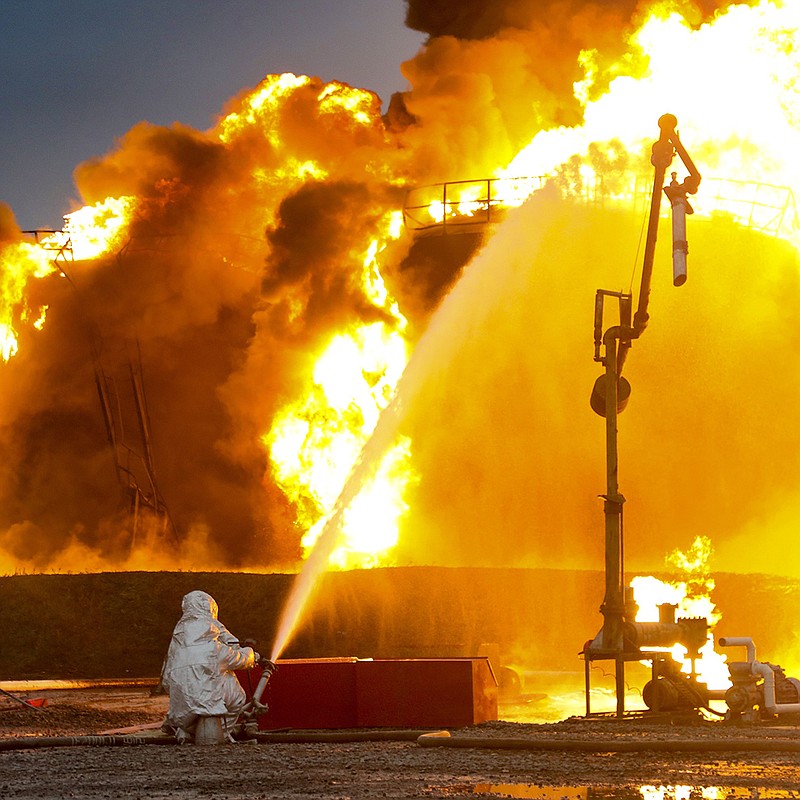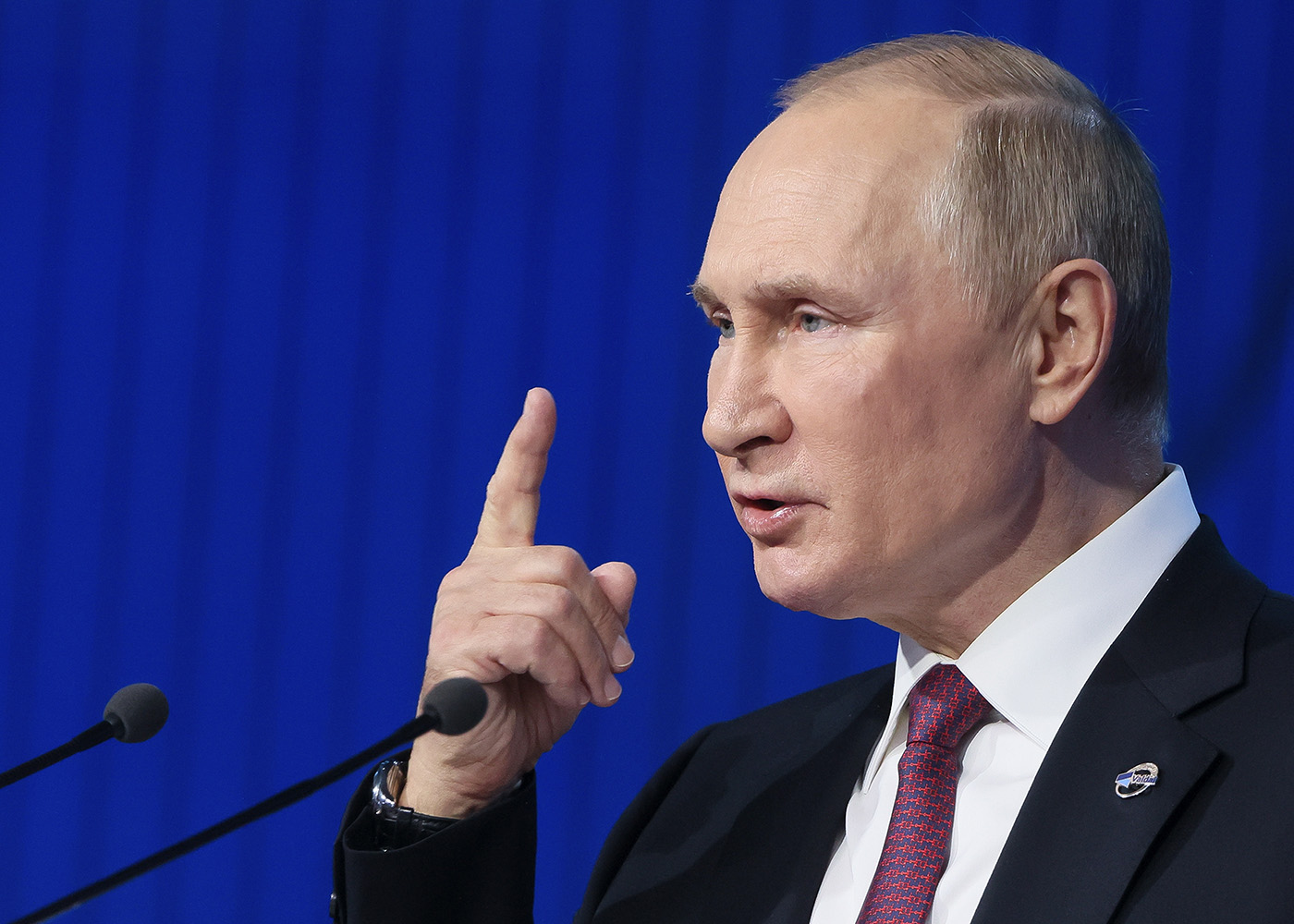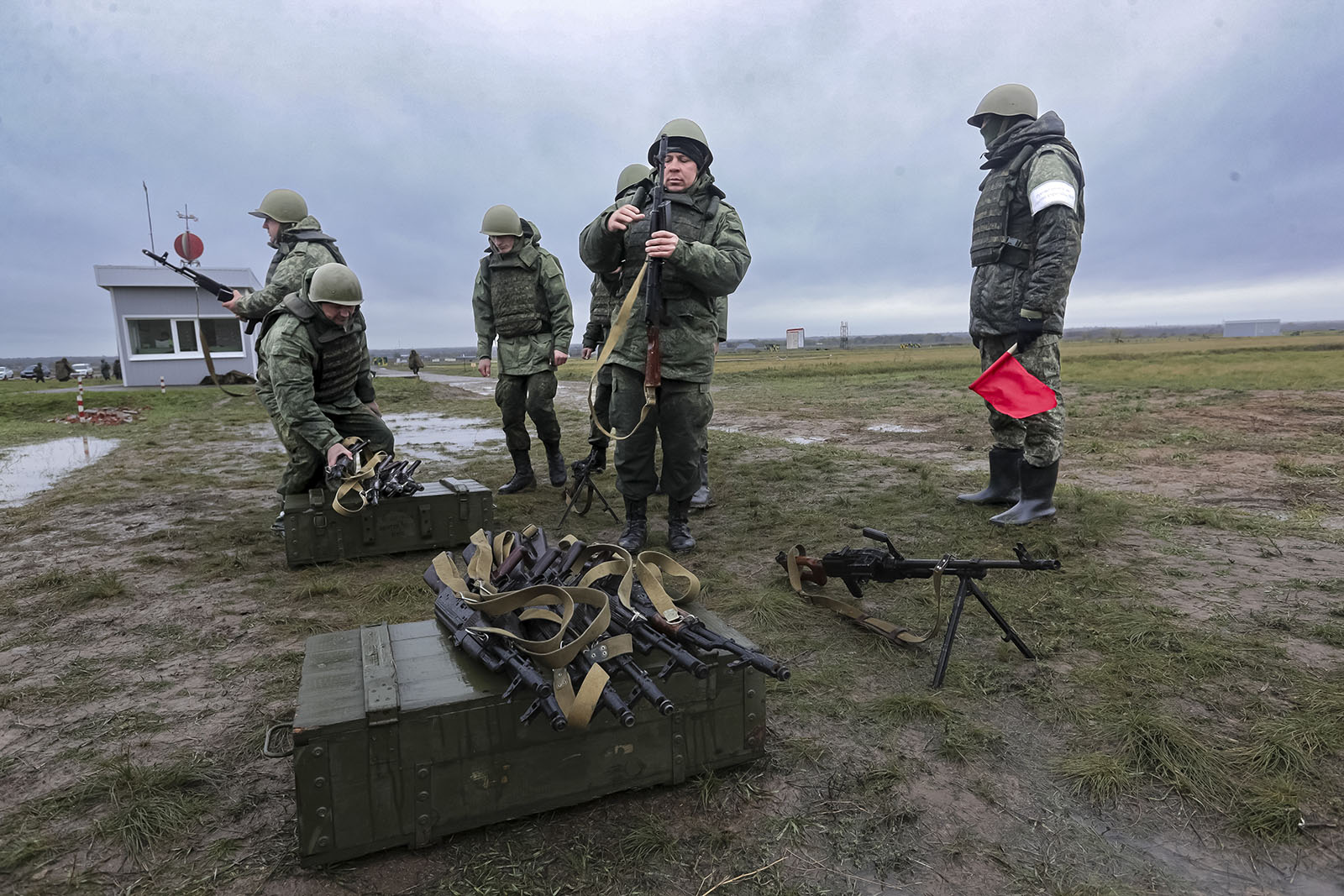President Vladimir Putin declared Thursday that Russia's battle was with "Western elites," not with the West itself, in a speech seemingly aimed more at winning over political conservatives abroad than his own citizens.
Putin, addressing an annual foreign policy conference outside Moscow, appeared intent on capitalizing on political divisions in the United States and its allies that have heightened since they began showering Ukraine with military aid to fend off the Russian invasion.
Many of the Russian leader's themes were familiar, but they took on particular resonance given the coming midterm elections in the United States and growing discontent in Europe over the costs of the war.
"There are at least two Wests," Putin said.
One, he said, is a West of "traditional, mainly Christian values" for which Russians feel kinship. But, he said, "there's another West -- aggressive, cosmopolitan, neocolonial, acting as the weapon of the neoliberal elite," and trying to impose its "pretty strange" values on everyone else. He peppered his remarks with references to "dozens of genders" and "gay parades."
Putin, as he often does, portrayed Russia as threatened by the possible expansion of NATO -- and the values of its liberal democracies -- to countries like Ukraine that were once part of the Soviet Union.
He denied that Moscow was preparing to use nuclear weapons in the war in Ukraine. "We have no need to do this," he said. "There's no sense for us, neither political nor military."
Putin himself, however, has raised that prospect, as have other senior Russian officials. And past Kremlin assurances about its intentions have proved unreliable. In the days before the war began, for example, Russia denied that it planned to invade Ukraine.
"This is a trick -- it shouldn't make anyone relax," said Tatiana Stanovaya, a Russian political analyst, noting that Putin has blamed the West and its support for an independent Ukraine for every escalation in the war. "His goal is to show that escalation is the product of Western policies."
In his nearly four-hour speech and question-and-answer session, the Russian leader did not mention the U.S. midterm elections taking place Nov. 8. But his barbs against "elites" were a reminder that he still hopes to build alliances with supporters of Russia in the West.
In the United States, Republican leaders have said that should they regain control of the House and Senate, President Joe Biden can no longer expect a "blank check" when it comes to sending military aid to Ukraine, despite strong popular backing for that aid.
Even some Democrats, faced with restive constituents, have appeared to distance themselves from support for the war effort.
And Putin's attack on "elites" may also play well in the United States, where many Republican candidates have rallied voters by denouncing leaders they say are out of touch, and their liberal approaches to divisive social issues.
"In the United States," he said, "there's a very strong part of the public who maintain traditional values, and they're with us. We know about this."
Putin's attempts to gain political ground in the West came as his military is struggling -- often without success -- to keep hold of the territory it seized in Ukraine after invading on Feb. 24.
In the question-and-answer session, the foreign policy analyst moderating the event, Fyodor Lukyanov, pressed Putin on those setbacks, and said there was a widespread view that Russia had "underestimated the enemy."
"Honestly, society doesn't understand -- what's the plan?" Lukyanov asked.
Putin brushed aside the implicit criticism, arguing that Ukraine's fierce resistance showed that he was right to launch the invasion. The longer Russia had waited, he said, "the worse it would have been for us, the more difficult and more dangerous."
Putin also repeated Russia's claims that Ukraine was preparing to detonate a "dirty bomb" to spread radioactive material on its territory and then blame Moscow. Ukraine and the West say that the claims -- for which Russia has offered no evidence -- are baseless disinformation that could be used as a pretext by the Kremlin to use a nuclear weapon or a dirty bomb.
Stanovaya said Putin appeared to be trying to harness worldwide anti-establishment sentiment.
"There's now a sense that he is building an anti-Western coalition on a global scale," she said. "He doesn't think he's been backed into a corner. He thinks he's a witness to the birth of a new world."
Putin said he was confident that eventually the West would be forced to engage Russia and other world powers in talks on a future world order.
"I always believed, and believe, in the power of common sense," Putin said. "I am therefore convinced that sooner or later, the new centers of the multipolar world order and the West will have to start a conversation of equals."
As Western leaders have tried to punish Moscow for the war with crushing sanctions, Russian leaders have sought to build new ties to other nations and strengthen existing ones. On Thursday, the government of one of those nations, China, an increasingly important ally, offered a full-throated endorsement of Putin's leadership.
In a telephone call with his Russian counterpart, Foreign Minister Wang Yi said that any attempt to block the progress between the two countries would never succeed, the Chinese ministry said in a statement.
In Ukraine on Thursday, Russian forces pursued their drone and missile assaults on infrastructure, leaving hundreds of thousands of Ukrainians without power. And the Ukrainian military said it was increasing the number of soldiers near its northern border with Belarus, where it noted what it said were unusual troop movements.
Brig. Gen. Oleksii Hromov said Kyiv had no new evidence to suggest that Belarusian or Russian forces were preparing a strike force, but concern has mounted in recent days after the Kremlin dispatched thousands of soldiers to Belarus.
But the more immediate concern for Ukrainian officials is the continuing use of Belarus as a launching pad for aerial assaults.
Russia has deployed its troops to airfields in Belarus, and this week, it used Belarusian territory to carry out 10 launches of Iranian-made drones, Hromov said.
WESTERN SATELLITES
IN WAR EFFORT
Meanwhile, Russia warned that Moscow could target Western commercial satellites used for military purposes in support of Ukraine, and a Foreign Ministry spokeswoman accused the United States of pursuing "thoughtless and mad" escalation.
Spokeswoman Maria Zakharova argued that Washington should take an approach more like it did during the Cuban Missile Crisis in 1962, when the Cold War superpowers stepped back from the brink of nuclear confrontation.
"The more the U.S. is drawn into supporting the Kyiv regime on the battlefield, the more they risk provoking a direct military confrontation between the biggest nuclear powers fraught with catastrophic consequences," Zakharova said.
A Russian diplomat has strongly protested the use of Western commercial satellites in support of Ukraine and warned that they could be targeted.
Konstantin Vorontsov, a deputy head of the Russian delegation at a United Nations arms control panel, said in remarks delivered Wednesday that the use of U.S. and other Western commercial satellites for military purposes during the fighting in Ukraine is "extremely dangerous" and effectively means their involvement in the conflict.
Vorontsov warned that "the quasi-civilian infrastructure could be a legitimate target for a retaliatory strike," adding that the Western action raises risks for stability of space assets serving civilian needs.
Ukraine has pushed ahead with an offensive to reclaim the Kherson region and its capital of the same name, which Russian forces captured during the first days of a war now in its ninth month.
More than 70,000 residents from the Kherson city area have evacuated in recent days, the region's Kremlin-installed governor, Vladimir Saldo, said Thursday.
Members of the Russia-backed regional administration also fled, the deputy governor, Kirill Stremousov said. Monuments to Russian heroes were moved, along with the remains of Grigory Potemkin, the Russian general who founded Kherson in the 18th century. His remains were kept at the city's St. Catherine's Church.
Ukrainian President Volodymyr Zelenskyy described reports of Russian troops' possible withdrawal from the city as disinformation.
"I don't see them fleeing from Kherson," Zelenskyy said in an interview with Italy's Corriere della Sera newspaper. "This is an information attack, so that we go there, transfer troops from other dangerous directions there."
Zelenskyy also dismissed as "theater" recent attempts by local Kremlin-backed officials to persuade the city's civilian residents to relocate deeper into Russian-held territory ahead of the Ukrainian advance.
"Their most trained soldiers are in position. We see this and do not believe them," Zelenskyy said.
In eastern Ukraine, Russian forces continued to bombard the city of Bakhmut in the Donetsk region, making slow gains toward the center.
As they have all month, Russian forces carried out attacks on Ukraine's energy infrastructure, which have caused increasing worry ahead of winter.
A Russian drone attack early Thursday hit an energy facility near the capital of Kyiv, causing a fire, said Kyiv regional Gov. Oleksiy Kuleba. He said the latest attacks inflicted "very serious damage."
"The Russians are using drones and missiles to destroy Ukraine's energy system ahead of the winter and terrorize civilians," Kuleba said in televised remarks.
Kuleba announced new rolling blackouts and urged consumers to save power. He said authorities were still pondering how to restore service.
Kyrylo Tymoshenko, deputy head of Ukraine's presidential office, said rolling blackouts would also be introduced in the neighboring Chernihiv, Cherkasy and Zhytomyr regions.
Zelenskyy has said that Russian attacks have already destroyed 30% of the country's energy infrastructure.
Information for this article was contributed by Anton Troianovski of The New York Times and by Andrew Meldum of The Associated Press.
Gallery: Images from Ukraine and Russia, month 8



